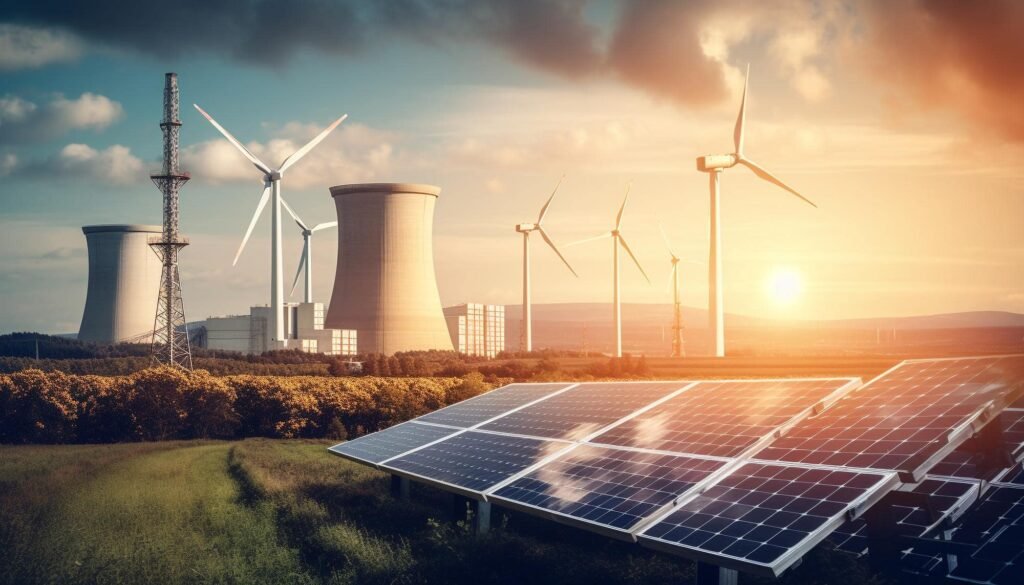Table of Contents
Toggle“Energizing India: A Roadmap to Overcome the Energy Crisis in the Next Five Years”
India, with its burgeoning population and rapidly expanding economy, faces a pressing challenge in ensuring a reliable and sustainable energy supply. However, with strategic planning and concerted efforts, India can overcome its energy crisis and embark on a path towards energy security and prosperity in the next five years.
**Investment in Renewable Energy**
Embracing renewable energy sources such as solar, wind, and hydroelectric power holds the key to India’s energy future. The country’s vast solar potential, abundant wind resources, and extensive coastline for hydropower present immense opportunities for renewable energy development. By incentivizing investment in renewable energy projects, India can diversify its energy mix, reduce carbon emissions, and enhance energy security.
**Enhanced Energy Efficiency*
Improving energy efficiency across various sectors is essential for reducing energy demand and optimizing resource utilization. Implementing energy-efficient technologies, promoting energy conservation practices, and enforcing energy efficiency standards can help curb energy consumption while enhancing productivity and competitiveness. Investing in energy-efficient appliances, buildings, and industrial processes can yield significant cost savings and environmental benefits.
**Modernization of Energy Infrastructure**
Upgrading and modernizing India’s energy infrastructure is critical for ensuring a reliable and resilient energy supply. This includes investments in transmission and distribution networks, grid modernization initiatives, and the integration of smart grid technologies. By enhancing infrastructure reliability and capacity, India can better meet growing energy demands and mitigate the risk of power outages.
**Policy and Regulatory Reforms**
Addressing policy and regulatory barriers is essential for unlocking India’s energy potential and attracting investment in the sector. Streamlining bureaucratic processes, ensuring policy consistency, and providing incentives for renewable energy deployment can create a conducive environment for energy sector growth. Additionally, phasing out fossil fuel subsidies and implementing carbon pricing mechanisms can promote the transition towards cleaner and more sustainable energy sources.
**Promotion of Public-Private Partnerships (PPPs)**
Leveraging public-private partnerships can mobilize additional resources and expertise for energy infrastructure development. Collaborating with the private sector can expedite project implementation, foster innovation, and share risks. PPPs offer a flexible and efficient mechanism for financing and managing energy projects, enabling India to achieve its energy goals more effectively.
**Focus on Energy Access**
Improving energy access, particularly in rural and underserved areas, is crucial for promoting inclusive growth and poverty reduction. Investing in off-grid and decentralized energy solutions, such as solar mini-grids and micro-hydro systems, can provide reliable electricity access to communities currently without power. Targeted electrification programs and access to clean cooking solutions can enhance the well-being and economic opportunities of marginalized populations.
**Enhanced International Cooperation**
Strengthening energy cooperation with neighbouring countries and international partners can unlock opportunities for mutual benefit and regional stability. Cross-border energy trade, technology transfer, and investment partnerships can enhance energy security and promote regional integration. Collaborating with countries like Pakistan, Bangladesh, Bhutan, and Nepal on hydropower projects can harness shared resources and promote sustainable development in the region.
Overcoming India’s energy crisis will require bold leadership, innovative solutions, and sustained commitment from all stakeholders. By prioritizing renewable energy deployment, enhancing energy efficiency, modernizing infrastructure, implementing policy reforms, promoting public-private partnerships, expanding energy access, and fosteringhttps://medium.com/@11fareedbaloch/energizing-india-a-roadmap-to-overcome-the-energy-crisis-in-the-next-five-years-3a1a05521917 international cooperation, India can chart a course towards energy security and sustainable development in the next five years.
In conclusion, India has the potential to emerge as a global leader in clean and sustainable energy. By seizing the opportunity to transform its energy landscape, India can unlock new avenues for economic growth, environmental stewardship, and social progress. With determination and collective action, India can overcome its energy challenges and build a brighter future for generations to come.
As India charts its course towards overcoming its energy crisis, it also presents an inspiring example for other countries grappling with similar challenges. By embracing renewable energy, enhancing energy efficiency, modernizing infrastructure, and fostering collaboration, India demonstrates that a sustainable and resilient energy future is within reach. As nations around the world strive to address the pressing issues of energy security and climate change, India’s roadmap serves as a beacon of hope and inspiration. Together, through shared knowledge, innovation, and collective action, we can create a more sustainable and prosperous world for current and future generations.

Pingback: Energy Security: empowering Pakistan a path to energy secur0